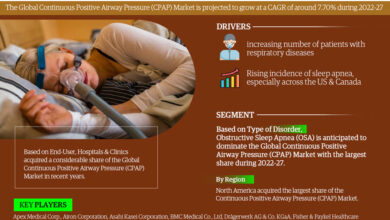ADHD and Eating Disorders: Identifying Problems and Taking Action
Both eating disorders and attention deficit hyperactivity disorder (ADHD) are separate but occasionally related illnesses that can have a serious negative effect on a person’s physical and mental health. While attention, impulsivity, and hyperactivity are the main cognitive skills affected by ADHD, abnormal eating behaviors and attitudes toward food are a hallmark of eating disorders such as binge-eating disorder, bulimia nervosa, and anorexia nervosa. Comprehending the correlation between eating disorders and ADHD is crucial for prompt identification, precise diagnosis, and efficacious intervention techniques.
The Relationship Between Eating Disorders and ADHD
Self-regulation is a common problem for people with ADHD, and this can affect how they eat. Impulsivity might show itself in some people as episodes of binge eating or impulsive eating. The impulsive nature of ADHD can also be a factor in poorly thought out meal plans and unpredictable eating schedules, which can result in erratic eating habits and possible nutritional deficits. On the other hand, hyperfocus, a prevalent characteristic of ADHD, can result in compulsive food thoughts or restricted eating habits as a means of preserving control.
According to research, people with ADHD are more likely than the general population to develop eating disorders. According to a research in the Journal of Abnormal Psychology, girls with ADHD had a twice as high risk of developing bulimia nervosa as girls without ADHD. This correlation emphasizes the necessity of early intervention and thorough screening in order to treat both illnesses at the same time.
Identifying Issues and Symptoms
Understanding the subtle differences between eating disorders and ADHD as well as any potential overlap is necessary to recognize the signs of both conditions:
Symptoms of ADHD:
Inattentiveness and trouble concentrating on work.
impulsivity, acting without careful consideration.
agitation, hyperactivity, and incessant motion.
Symptoms of eating disorders:
Anorexia Nervosa is characterized by severe dietary restriction, a distorted body image, and a fear of gaining weight.
Binge eating episodes that are followed by purging, overexercising, or fasting are symptoms of bulimia nervosa.
Recurrent episodes of uncontrollably large binges without any kind of coping mechanism is known as binge-eating disorder.
Due to the interplay between ADHD and eating disorders, symptoms in those with both diseases may appear differently or worsen. For instance, impulsivity in people with ADHD may make episodes of binge eating worse, and hyperfocus may be a factor in compulsive thinking about food and body image.
Diagnostic Difficulties and Things to Take Into Account
It might be difficult to diagnose eating disorders and ADHD combined because of their similar symptoms and complex clinical presentations. It is imperative for healthcare providers to do a comprehensive examination that takes into account medical history, behavioral observations, and psychological evaluations in order to distinguish between symptoms associated with eating disorders and ADHD.
Anxiety and depression are examples of comorbid illnesses that make diagnosis and treatment planning more difficult. Anxiety may be more common in people with ADHD, and this can worsen or coexist with eating problem symptoms. Accurate diagnosis and successful treatment depend on thorough evaluation and a multidisciplinary approach comprising nutritionists, psychologists, psychiatrists, and other experts.
Methods of Therapy
Treatment for eating disorders and ADHD effectively frequently involves a combined strategy that deals with both issues at the same time. Important elements of the regimen could be:
Behavioral Therapy:
Individuals can enhance self-regulation, create coping mechanisms, and change unhealthy food-related thoughts and behaviors by utilizing cognitive-behavioral therapy (CBT), which is specifically designed to address eating disorder behaviors and symptoms of ADHD.
Medication:
Commonly recommended stimulant drugs for ADHD can help reduce hyperactivity, impulsive control, and poor focus. To avoid any negative effects and keep an eye on any changes in eating habits, close observation is required.
Nutritional counseling:
Consulting with a certified dietitian can assist people in creating a routine eating schedule, addressing dietary deficits, and cultivating a positive connection with food.
Family Therapy and Support:
Including family members in therapy can help foster a supportive environment that is helpful to rehabilitation, increase communication, and offer invaluable support.
Mindfulness and Stress Management:
Practices like yoga, mindfulness meditation, and stress management techniques can help people with eating disorders and ADHD become more self-aware, less impulsive, and more adept at managing their emotions.
Difficulties with Treatment Compliance
Adherence to treatment might be difficult for people with eating disorders and ADHD for a number of reasons:
Impulsivity and Distractibility:
Trouble focusing and adhering to therapy guidelines.
Mood instability:
Motivation and participation in treatment may be impacted by emotional dysregulation.
Fear of Gaining Weight:
Treatment methods aimed at restoring weight or altering eating patterns may be met with resistance by people suffering from eating disorders.
To encourage adherence and long-term healing, healthcare practitioners must address these issues by offering individualized treatment programs, continuous support, and frequent monitoring.
The Significance of Awareness and Education
Increasing knowledge regarding the relationship between eating disorders and ADHD is essential for better results and early intervention. It is important for caregivers, educators, and healthcare professionals to be trained in identifying the symptoms of both illnesses and comprehending the intricacies involved in their co-occurrence. Accommodations and support techniques can be implemented in schools and workplaces to assist persons in managing their symptoms and achieving academic or professional success.
In summary
When they coexist, eating disorders and ADHD pose serious risks to one’s physical and mental well-being. Effective management and recovery require identifying the symptoms, comprehending the underlying mechanisms, and putting integrated treatment techniques into practice. Healthcare professionals can assist people in achieving better quality of life, healthier interactions with food, and increased general well-being by treating ADHD and eating disorders concurrently.
We can improve our knowledge of eating disorders and ADHD, lessen stigma, and support early intervention techniques that have a significant positive impact on the lives of those impacted by these complicated problems by conducting more research, spreading awareness, and advocating for change.








